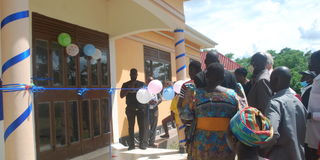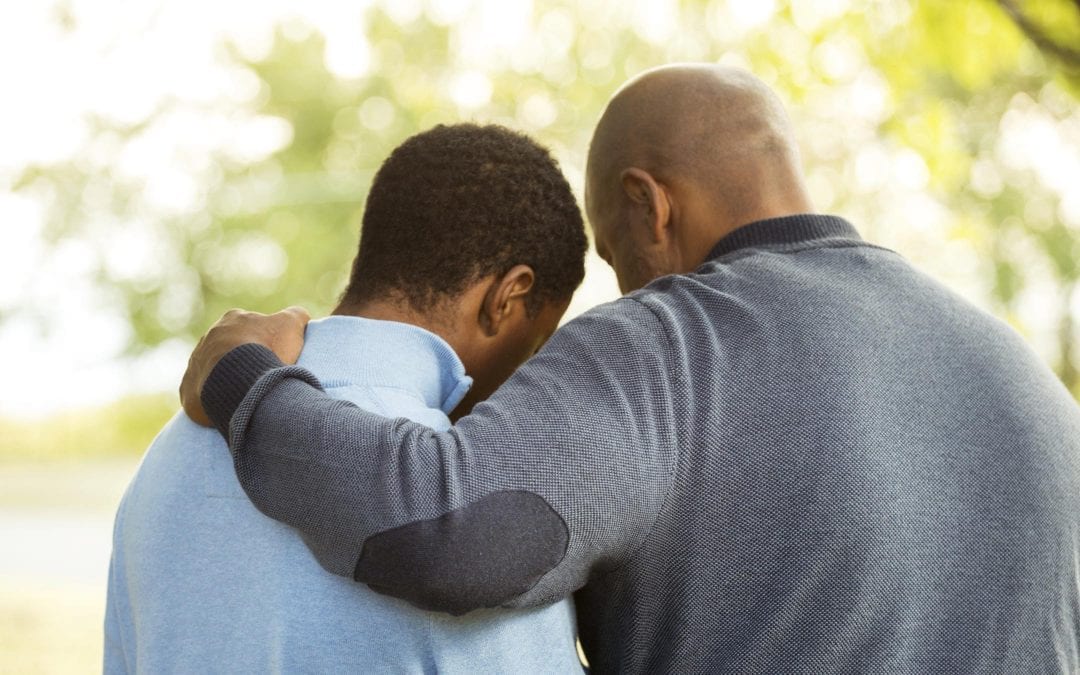Health centre in Kibuku opens to children with mental illness

Officials commission a health centre for mentally-ill children in Kagumu Sub-county in Kibuku District. PHOTO | MUDANGHA KOLYANGHA
What you need to know:
- Residents welcomed the facility, saying treating children with mental cases is not prioritised in government facilities.
Residents of Kibuku District and neighbouring areas have a reason to smile following the commissioning of a health facility in Kagumu Sub-county to handle cases of children with mental illnesses.
According to district statistics, Kagumu has about 189 children with mental disorders and disabilities.
The Shs123 million facility, commissioned at the weekend, was constructed by a German NGO, Eikos e.V, in partnership with Uganda Association for the Mentally Handicapped (UAMH) Inclusion Uganda.
Ms Elizabeth Gimbo, a resident of Budukulo Village in Kagumu, said access to treatment has been a challenge.
“Whenever we visit the government facilities, we find no drugs but with the establishment of this centre, we hope that we will have better access to healthcare,” Ms Gimbo said.
Mr Lawrence Amuryata, a resident of Nakonkoli Village, said they have been demanding a speciality health centre for children with mental cases.
“Drugs to treat children with mental cases are not prioritised in the government facilities that is why we have been demanding this facility,” Mr Amuryata said.
The chairperson of Nakonkoli, Mr Alex Napekele, said out of 10 children in the village, two are born with mental illnesses or any other related disabilities. “The situation is dire in this area as far as mental illnesses are concerned among the children. We have more children with mental disorders than any other place,” he said.
The district secretary for health and education, Mr Augustine Majanga, attributed the rampant cases of mental illness in the district to poor nutrition.
“People need to be economically empowered so that access to food and diet, especially among pregnant women, is not a challenge,” Mr Majanga said.
Mr Hussein Wegulo, an official from the Ministry of Gender, Labour and Social Development, said tasked the district leadership to support people with mental and other related disabilities through various income-generating projects.
The UAMH-Inclusion Uganda chairperson, Ms Betty Byanaku, said the facility will also reduce stigmatisation.
“The children together with their parents have been facing a bigger challenge to access the health facilities.These children are discriminated against from their homes and to accessibility of treatment,” Ms Byanaku said.
Mr Moses Kirya, the programme manager of UAMH-Inclusion Uganda, said many families have neglected the children.
“But we are sensitising the communities to understand that these children deserve equal opportunities,” Mr Kirya said.
The project coordinator, Ms Bertha Kawooya, said during the needs assessment, they found that primary health care for children with mental illnesses is lacking.
Cases of mental health
Last week, Ministry of Health reported that 14 million out of the 42 million Ugandans have mental health challenges. Simply put, three out of every 10 Ugandans, have mental issues. Quite a significant number, yet experts say, it could be bigger now because the samples were done in 2019, before Covid-19 came. According to the World Health Organisation, women are twice more likely than men to experience mental health problems and three times more likely than men to attempt suicide—though men commit suicide four times more often.





